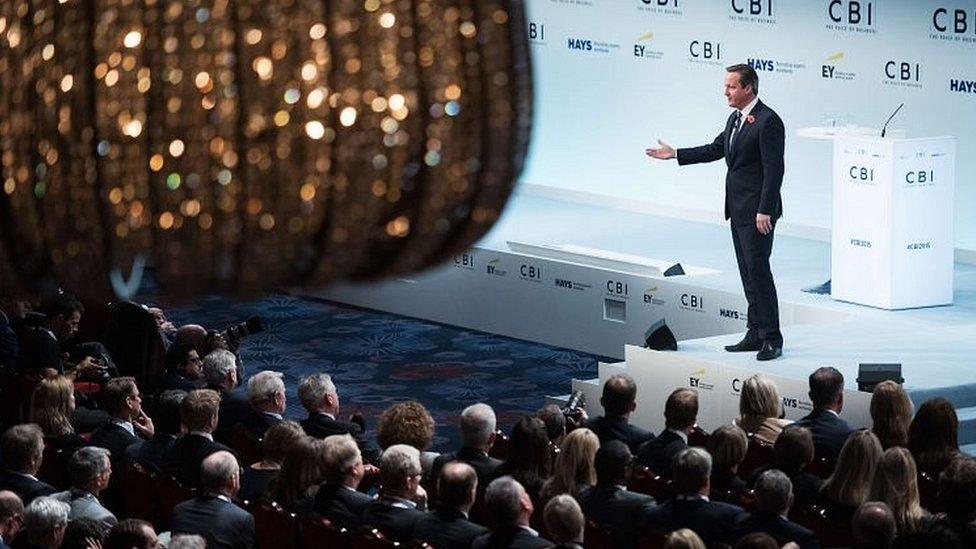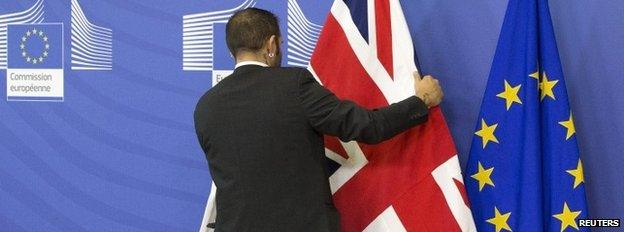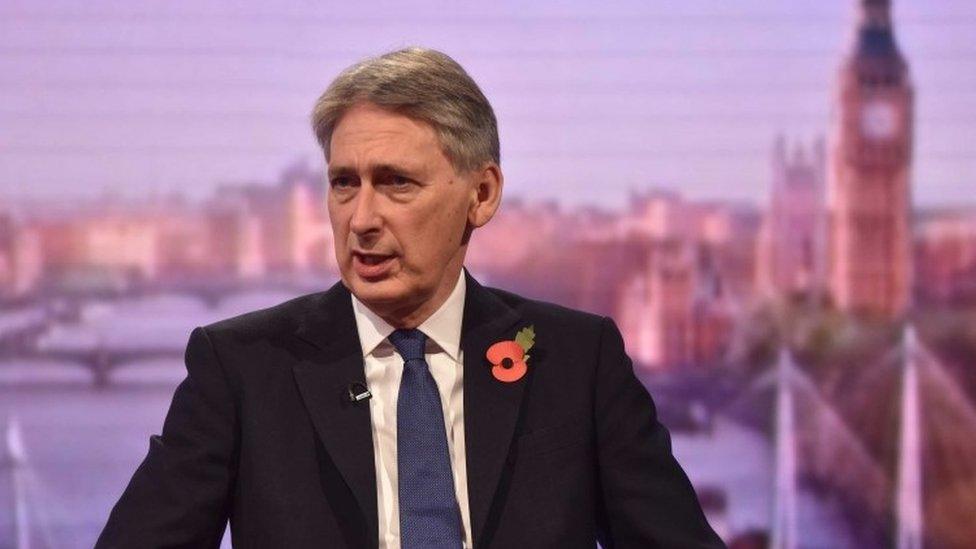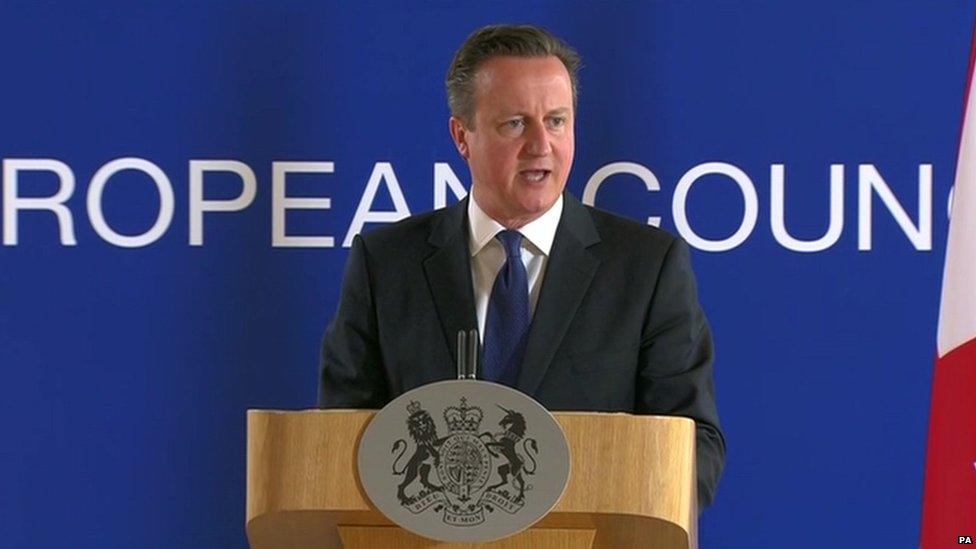David Cameron 'deadly serious' about need for EU reform
- Published
David Cameron questioned by James Landale on spending review and EU vote
David Cameron has said he is "deadly serious" about securing EU reforms and said that if his renegotiations failed "we will have to ask ourselves - 'is this organisation for us?'".
The prime minister told the CBI conference the issue was not whether the UK could survive outside the EU but whether it would be more successful.
He added that "the status quo isn't good enough for Britain".
The PM is to set out his reform proposals in detail on Tuesday.
Follow the latest updates with BBC Politics Live
David Cameron has said the UK needs to negotiate a "better deal" from its membership of the EU and will hold an in-out referendum on the issue by the end of 2017 - although he has not said when the vote will be held.
This is a key week for David Cameron's talks with the EU's other 27 leaders.
He told the CBI that he wanted to take on the "duff arguments" - such as one side saying that the UK could not survive outside the EU and the other side saying they would be able to thrive by following the Norway example.
In a speech that was briefly interrupted by two hecklers holding up banners saying "CBI = Voice of Brussels", Mr Cameron said he had "no emotional attachment" to the institutions of the EU.

Hecklers disrupt David Cameron's speech
The hecklers later said they were from a group called Students for Britain, an offshoot of the Vote Leave campaign, which argues the UK would be better off outside the EU.
Mr Cameron said he wasn't going to "pretend for a second that Britain couldn't survive" outside the EU - and he stressed that the key goal was to secure a more "flexible" organisation.

Read more on this story


Mr Cameron added that "the status quo isn't good enough for Britain" and that "getting rid of closer union" and "reducing pressures from immigration" were big and important changes that needed to be delivered.
However, he said, if these reforms were secured then he would throw himself headlong into defending Britain in a reformed Europe.
For Labour, shadow chancellor John McDonnell described the prime minister's position on Europe as "a lot of bluff and bluster at the end of the day" and more about "appeasing some of the Eurosceptics in his own party".
He told the BBC Labour's position was that Britain should stay in the EU and "negotiate our reform agenda as members of the club".
On Tuesday, for the first time, David Cameron will set out in writing the areas of the EU he wants to reform; such as protecting the sovereignty of national governments and restricting benefits for migrant workers.
'Deaf ears'
The BBC's Brussels correspondent Alex Forsyth said the letter to European Council President Donald Tusk was largely expected to confirm what's already known but would be a significant moment in the lead-up to December's summit of EU leaders - where the proposals will be discussed.
Mr Cameron, she said, has the tough task of convincing other EU leaders his planned changes are acceptable, while persuading Eurosceptics they're meaningful. The prime minister has warned he'll rule nothing out if his demands fall on deaf ears .
Meanwhile, Downing Street has dismissed reports the poll could be held in June, saying this was "not true".
David Cameron is understood to want an early vote but has already been forced to rule out holding the poll on 5 May, the same day as national elections in Scotland, Wales and Northern Ireland.
The Vote Leave campaign, which set up a company to register for the CBI conference so the hecklers could pose as businessmen, said Mr Cameron's negotiating demands were likely to be "trivial".
"The public wants the end of the supremacy of EU law and to take back control of our economy, our borders, and our democracy," said its campaign director Dominic Cummings.
"The only way to do this is to vote leave. No 10 is panicking because people can see the renegotiation is a dishonest gimmick."
- Published8 November 2015

- Published4 November 2015

- Published30 December 2020
